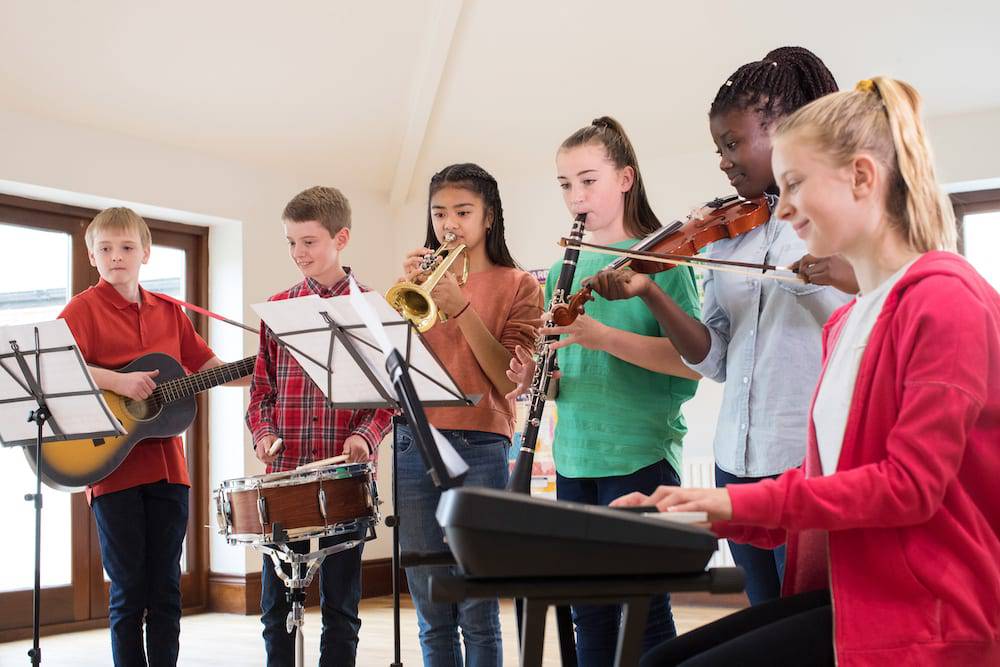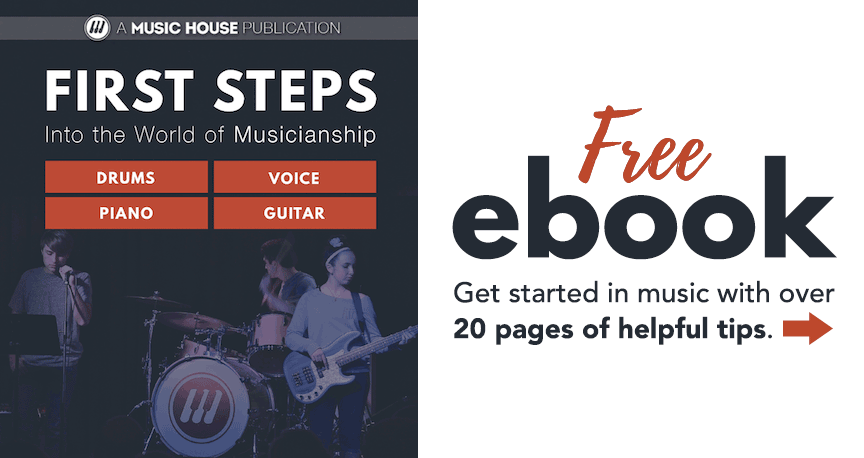6 Reasons Why You Should Play Music in a Group Setting

After you’ve started getting the hang of your chosen instrument, you might be wondering what the next step is. Music is very diverse and there are many different paths it can take you down. Playing solo is great, especially if you are after a scholarship or you are wanting to compete in formal music competitions. However, playing in a group has a lot of benefits as well. Whether you are taking part in face to face or online music education, joining a band or ensemble can really help you to become a better musician!
Today, our Music House team wants to explore some of these great benefits as well as offer more information about the music education we offer. Keep reading to learn more!
#1.) Sharpen Your Communication Skills
In every walk of life, you are going to need to know how to effectively communicate. This could be at school while working on a group project or in the workplace while teaming up to better assist a client. If you don’t know how to communicate your thoughts, ideas, and concerns to the people around you, this could lead to roadblocks in your goals. The good news is that playing in an ensemble or band can help you to do just that!
When you pair or group up with your musical peers, you’re going to have a lot to discuss. First of all, you’re going to have to decide on a piece of music you want to play. From there, you will need to establish interpersonal connections with your team to build comradery and understanding of their personalities and learning styles. On top of that, you will need to be able to communicate logistics such as practice schedules and locations. The communication skills that you learn in this setting will translate into real world situations.
#2.) Teaches Teamwork
Think of playing in a band or ensemble similar to a sport’s team. Every person has a unique role, but each one is very important. Whether you play different instruments or you all play the flute but have harmonizing parts, you need to learn how to work together as a team. This means coming together to support each other through bumps in the road while also celebrating goals and offering encouragement.
Playing in a group isn’t an excuse to slack off, however. Just like on a football team, even if the quarterback shows up but the kicker doesn’t, you are going to be missing some very important elements to the game. With music, be sure to bring your best to the ensemble and play your part to the top of your ability. This will likely encourage your fellow musicians to do the same.
#3.) Exposure to New Music
Do you feel as though your playing is getting a little stale? Are you feeling burnt out playing solo pieces all the time? One great solution for this is to join a band or an ensemble! Participating in music in a group setting is an excellent way to expose yourself to new types of music. For example, if you are a classical piano player, join up with a jazz or rock band. If you are a choral music singer, try performing with a band. There are so many options to choose from and you won’t know until you get out there and try!

#4.) Make New Friends
As anyone who has been a part of the music scene can tell you, one of the best things about playing music is the people you get to meet along the way. Making new friends and connecting with those around you will do wonders for your playing but also, for your mental well being. It is no secret that humans are social creatures and thrive off of being around others. Whether you are taking part in face to face or online music education, find local peers that you can team up with.
Even if you are a shy person or have struggled with making friends in the past, music can still be a great way to connect. You will always have something in common with those around you - music! - and you can only draw deeper connections with others from there. Everyone has a favorite band, musician, genre, or song. Use that as a starting point and go from there!
#5.) Learn How to Support Vs. Stand Out
One of the common issues that solo musicians face when they transition into a group setting is that they aren’t sure how to take on a supporting role. Some pieces of music may even call for various sections or individuals to stand out at varying points. These dynamics can be hard to master, but once you get the hang of it, you will be a better musician for it. Remember that when playing with a group, all eyes (and ears) aren’t solely on you.
#6.) Playing in a Group is Fun
Above all else, playing in a group is fun! If music has lost its spark or you simply feel like playing isn’t as fun as it used to be, try joining a band or ensemble. Learning and growing musically alongside your friends is very rewarding and can leave you with a renewed sense of accomplishment. Performances are also a lot of fun and there is no feeling quite as exhilarating as getting to share your music with a live audience! If you’re looking for a fun way to revive your love for playing music, joining an ensemble or group could be the answer.
Join Music House Today!
Here at Music House, we understand the value that playing in a group setting can have for a musician. That is why our Band Workshop Program is a key component in the Music House Method. We believe that by fostering a fun, musical environment, we can elevate our students to be the best musicians they can. To learn more about Music House or to inquire about becoming a student, be sure to contact us today!

